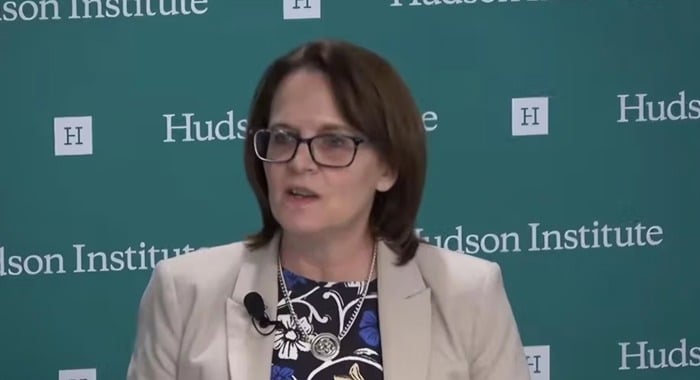At a recent Hudson Institute event, former U.S. National Security Council official Lisa Kurtz delivered a strong critique of America’s approach to the Taliban peace process, arguing that the 2020 Doha agreement was never a true peace deal but merely a roadmap for U.S. withdrawal from Afghanistan.
Kurtz asserted that the agreement, brokered under the Trump administration, made excessive compromises to the Taliban without securing a lasting peace. She criticized the Biden administration for sticking to the terms of this deal, including retaining Zalmay Khalilzad as the lead U.S. envoy, instead of reassessing the policy and pursuing a new path forward.
One of her key concerns was the U.S.-pressured release of 5,000 Taliban prisoners by the Afghan government, many of whom, she noted, returned to the battlefield. “It was as if the country was handed over to the Taliban on a silver platter,” she said.
Kurtz also expressed disappointment over the withdrawal of former U.S. service members from Afghanistan, especially after their sacrifices during evacuation efforts. She claimed that these decisions not only betrayed allies on the ground but also weakened American leverage in the region.
In her remarks, she stressed the need to revive an inclusive political dialogue in Afghanistan, involving a broad range of Afghan voices, not just the Taliban. She voiced strong support for anti-Taliban groups such as the resistance front led by Ahmad Massoud, arguing that they represent significant segments of the Afghan population and should be given political space and international backing.
Kurtz warned that the U.S. should not be deceived into treating the Taliban as a reliable partner against ISIS. “America’s absence has emboldened the Taliban, and concessions made in the name of counterterrorism risk empowering the wrong forces,” she cautioned.
In conclusion, she called on U.S. lawmakers and decision-makers to stand by Afghanistan’s democratic forces and rethink the current hands-off approach toward the Taliban regime.





